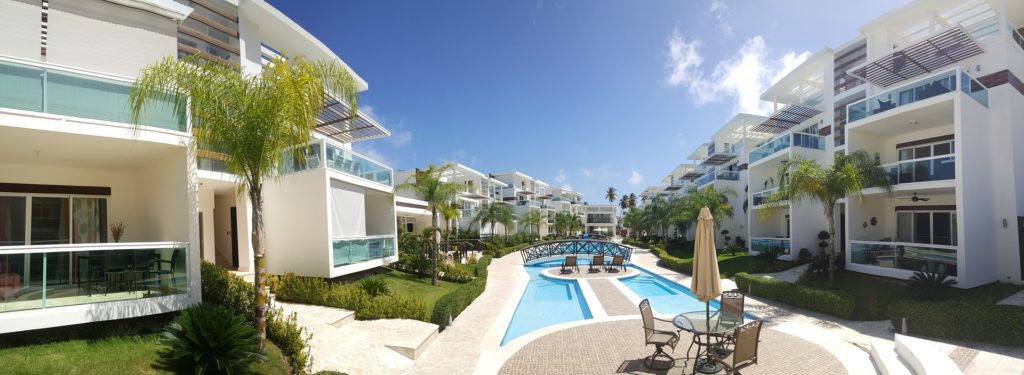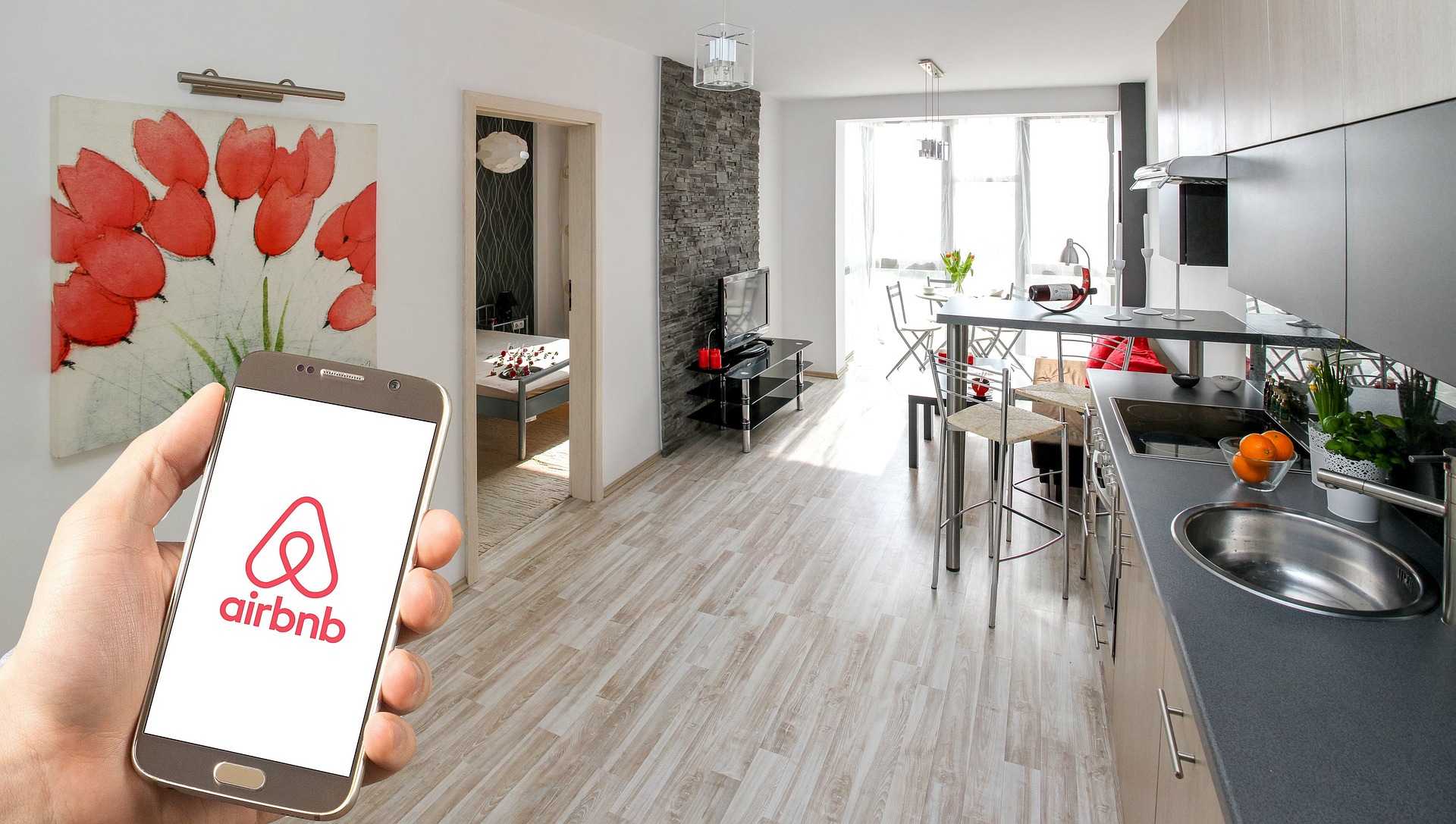In this article, we will explore through a the step-by-step guide Airbnb Arbitrage model, which allows investors to lease a property and then rent it out to guests on Airbnb, generating income and profit.
The emergence of the sharing economy has revolutionized the way we think about the traditional business model. Airbnb, a popular home-sharing platform, has become a game-changer in the rental market, allowing individuals to rent out their homes and properties to travelers from all over the world.
However, another innovative concept has emerged, which has gained popularity among entrepreneurs and investors alike – rental arbitrage on Airbnb.
We will explain the steps involved in starting a Rental Arbitrage business on Airbnb, highlighting the factors to consider when starting such a business, including legal and regulatory issues, taxation, insurance, and customer service.
In addition, we will examine the pros and cons of Rental Arbitrage on Airbnb, outlining the advantages of this business model, such as the potential for passive income, and the challenges and risks associated with it.
Finally, we will offer some best practices for successful rental arbitrage on Airbnb, including understanding the local rental market, choosing the right property, furnishing and designing the property strategically, optimizing the Airbnb listing, and managing the property effectively.
Overall, this article will provide an in-depth guide to the Rental Arbitrage Airbnb model, giving you the information and tools you need to succeed in this innovative and exciting business venture.
What is Rental Arbitrage?
Rental arbitrage is a business model that involves leasing a property and then subletting it to short-term guests through platforms like Airbnb, HomeAway, or VRBO.
The concept is simple: you rent a property from a landlord, furnish and decorate it, and then list it on short-term rental platforms at a higher price than you pay in rent, generating a profit in the difference.
The profitability of rental arbitrage is based on the difference between the long-term rental price and the short-term rental price. By renting out a property on a short-term basis, you as the host/investor can earn much higher revenue compared to a traditional long-term rental.
This can be especially true for properties located in popular tourist destinations or major cities with high demand for short-term rentals.
However, rental arbitrage is not without risks. The primary risk is the lease agreement between the landlord and the host. Most landlords do not allow subleasing, and rental arbitrage could result in the host losing the lease and incurring significant financial penalties.
Additionally, rental arbitrage hosts face stiff competition from other Airbnb hosts, and market demand can fluctuate significantly, which can affect profitability.
Nevertheless, the benefits of rental arbitrage can be significant, including low start-up costs and high potential for passive income. With careful research and management, rental arbitrage on Airbnb can be a lucrative and sustainable business venture.
This opportunity also gives you the ability to basically become a property investor, without actually owning the property and an be highly lucrative because you can easily scale it with additional units.
Some experienced AirBnB arbitrage investors are known to run hundreds of units across the globe, without physically being present at these properties.
The Step-by-Step AirBnB Arbitrage Model
Starting a rental arbitrage business on Airbnb requires careful planning and execution. Below are the basic steps you should follow to get started:
- Research the market and the competition Before starting your rental arbitrage business on Airbnb, you need to research the market and the competition. This includes understanding the demand for short-term rentals in your area and identifying your target market. You should also research the competition in your area to determine how you can differentiate your rental property and stand out from the competition.
For example, if you plan to start a rental arbitrage business in Cape Town, South Africa, you should research the different neighborhoods in Cape Town and identify those that are popular with tourists.
You should also research the competition on Airbnb by analyzing their listings, pricing, quality of furnishings, pictures and reviews.
- Identify the right property for rental arbitrage Once you have researched the market and the competition, the next step is to identify the right property for your rental arbitrage business. The ideal property for rental arbitrage is one that is located in a desirable area, has low monthly rent, and has the potential for high occupancy rates.
For example, in Johannesburg, South Africa, you may want to target properties located in areas such as Sandton or Rosebank, which are popular with business travelers and tourists.
These areas have a high demand for short-term rentals, and you can potentially earn a higher profit from your rental arbitrage business.
- Furnish and design the property to attract guests and earn positive reviews, you need to furnish and design your rental property strategically. This includes selecting furniture and decor that are both stylish and functional, and that appeal to your target market. You can either purchase new furniture and decor or lease the furniture or you may even consider buying second hand items and refurbish them, which is a great way to save on your set up costs.
- Set the rental price Setting the right rental price is critical to the success of your rental arbitrage business. You need to price your rental property competitively while still generating enough profit to cover your expenses and earn a reasonable return on your investment.
To determine the optimal rental price (which is the rate per night when working on AirBnB), you should research the rates for similar properties in your area and consider the demand and seasonality of the market.
For example, in Cape Town, South Africa, you may want to adjust your rate/night depending on the high or low season, as demand for short-term rentals can fluctuate significantly.
- Create an Airbnb listing to list your rental property on Airbnb: you need to create an account and create a listing that highlights the features and benefits of your property. Your listing should include high-quality photos, a detailed description of the property, and clear pricing and booking policies.
- Manage guest communication and bookings: as a rental arbitrage host you are responsible for managing guest communication and bookings. This includes responding to guest inquiries and booking requests promptly, providing detailed information about your rental property and the surrounding area, and ensuring that your guests have a positive experience during their stay.
- Hire a cleaning and maintenance team to ensure that your rental property is always clean and well-maintained, you should hire a professional cleaning and maintenance team. This team should be responsible for cleaning the property between guest stays, handling repairs and maintenance issues, and ensuring that the property is always in good condition for your guests.
- Monitor and analyze the business performance to ensure the success of your rental arbitrage business on Airbnb, you need to monitor and analyze your business performance continuously. This includes tracking your occupancy rates, revenue, and expenses, and identifying areas where you can improve your profitability and guest satisfaction.
By following these steps, you can start a successful rental arbitrage business on Airbnb in any of the major South African cities such as Cape Town, Johannesburg, and Durban, and potentially earn significant income and achieve financial independence.
However, it’s important to note that rental arbitrage can be a challenging business model, and success is not guaranteed.
Finding Properties For Your AirBnB Arbitrage Business
When starting an Airbnb rental arbitrage business, finding suitable properties and negotiating lease agreements is crucial. Here are some tips on how to go about it:
- Identify your target market: Before you start looking for properties, it’s important to identify your target market. Consider the type of guests you want to attract, the location they prefer, and the amenities they expect.
- Look for suitable properties: Once you have identified your target market, start looking for suitable properties. You can search online property portals, classifieds, or work with a real estate agent. It’s important to consider factors such as location, rental rates, and property condition.
- Contact landlords: After identifying potential properties, reach out to the landlords or property owners to negotiate a lease agreement. It’s important to be upfront about your intentions to sublease the property for Airbnb rentals. A key factor about AirBnB occupants/guests is that they tend to look after units much better than traditional long term tenants. This is something that actually appeals to landlords. So come across as a professional that knows what they’re doing and you won’t have issues convincing potential landlords that you’re a good choice for their property.
- Negotiate lease terms: When negotiating lease terms, consider factors such as rental rates, length of lease, renewal options, and responsibilities for maintenance and repairs. Ensure that the lease agreement allows for subleasing and includes any necessary clauses to protect your interests.
Remember that negotiating lease agreements can be a challenging process, but with proper research and negotiation skills, you can secure a profitable deal that benefits both you and the property owner.

Analyzing AirBnB Arbitrage Opportunities
Analyzing an Airbnb arbitrage opportunity is a critical step in determining the viability and potential profitability of a rental property. Here are some factors to consider and tools to use when analyzing an Airbnb arbitrage opportunity:
- Market Demand: Analyze the local Airbnb market to determine demand for short-term rentals, including occupancy rates, pricing trends, and seasonality.
- Property Expenses: Calculate the total expenses associated with the property, including mortgage payments, property taxes, insurance, utilities, maintenance costs, and any other relevant expenses.
- Rental Income: Estimate the potential rental income based on market demand and comparable properties in the area.
- Occupancy Rates: Estimate the occupancy rate based on market demand and seasonality, and factor in any downtime for cleaning and maintenance.
- Return on Investment: Calculate the potential return on investment (ROI) based on the difference between rental income and expenses.
Here’s an example scenario:
Assume you as the investor is considering leasing and furnishing a property using the AirBnB Arbitrage model:
Let’s say you want to lease a 2-bedroom apartment in Johannesburg for ZAR 8,000 ($444) per month. You will also need to pay a deposit of ZAR 8,000 ($444) to the landlord and you estimate that furnishing the property will cost ZAR 50,000 ($2,778).
With these initial costs factored in, the total initial investment required for the Airbnb arbitrage opportunity would be ZAR 58,000 ($3,222).
Based on market demand and comparable properties in the area, you estimate the potential rental income to be ZAR 29,580 ($1,643) per month, which you calculated on the assumption that you’ll achieve an average rate of R986/night on a 30 day month.
That’s R986/night x 30 days = R29,580 total potential income (assuming 100% occupancy of the unit).
To calculate the ROI (Return On Investment), you would subtract the monthly lease payment and other ongoing costs, such as utilities, cleaning, consumables and any other applicable expenses from the monthly income.
Let’s assume you calculate that your average monthly running expenses will be R14,314pm ($795)
Assuming a 90% occupancy rate, you calculate that you’ll be able to achieve an average gross rental of R26,622 per month (R29,500 x 0.90 = R26,622).
This means you could potentially earn R12,308 profit per month (+-$683pm)
To calculate your ROI, you simply multiply this nett profit figure of R12,308 by 12 (equals R147,696) and divide it by the cost of your investment.
This would give you an annual yield of 254% (R146,832/R58,000 = 254%) and a payback period of just under 5 months.
However, it’s important to note that this analysis doesn’t factor in other potential costs such as marketing expenses, taxes, and insurance. It’s a simplified example for the purpose of illustration.
Online Tools To Help You Analyze AirBnB Arbitrage Opportunities
To analyze Airbnb arbitrage opportunities more efficiently and accurately, there are several online tools and software that you can use. Some popular options include:
- AirDNA: This tool provides data-driven insights and analysis for Airbnb properties, including rental income estimates, occupancy rates, and market demand trends.
- Mashvisor: This tool uses machine learning algorithms to provide real-time analytics and insights for Airbnb properties, including rental income, expenses, and ROI calculations.
- Hostfully: This tool provides a comprehensive property management platform for Airbnb hosts, including automated guest communication, scheduling, and analytics.
By leveraging these online tools and software, investors can more effectively analyze Airbnb arbitrage opportunities and make informed decisions about their rental property investments.
Factors to Consider when Starting a Rental Arbitrage Business on Airbnb
Starting a rental arbitrage business on Airbnb can be a lucrative venture, but there are several factors to consider before diving in. Here are some key factors to keep in mind:
- Location: The success of your rental arbitrage business largely depends on the location of your property. You should consider factors such as tourist demand, accessibility, safety, and local regulations before selecting a property to rent out on Airbnb.
- Property Management: As a rental arbitrage business owner, you’ll be responsible for managing the property and guest experience. This includes cleaning and maintenance, handling guest inquiries and complaints, and providing a welcoming and comfortable stay for your guests.
- Finances: Starting a rental arbitrage business can require significant upfront investment. You’ll need to consider the cost of rent, furnishings, utilities, and other expenses, as well as the potential income you can generate from renting out the property.
- Legal and Regulatory Compliance: Short-term rentals are subject to local by-laws and regulations, which vary by jurisdiction. It’s important to research and comply with the legal requirements in your area, including obtaining any necessary permits or licenses.
- Marketing and Customer Service: In order to attract and retain guests, you’ll need to have effective marketing strategies in place and provide excellent customer service. This includes writing compelling property descriptions, responding promptly to guest inquiries, and ensuring that guests have a comfortable and enjoyable stay.
- Risk Management: There are inherent risks associated with renting out a property on Airbnb, such as property damage, theft, or legal liability. It’s important to have adequate insurance coverage and take steps to mitigate these risks.
Pros and Cons of AirBnB Arbitrage
Like any business model, rental arbitrage on Airbnb has both pros and cons. Here are some of the most significant advantages and disadvantages to consider before starting a rental arbitrage business:
Pros:
- Potential for High Profit Margins: By renting out a property on Airbnb, you can earn significantly more than you would through traditional long-term rentals or other investments.
- Flexibility and Control: As a rental arbitrage business owner, you have control over the property and the ability to set your own rental rates and booking policies. This can provide greater flexibility than other types of businesses.
- Diversification: Investing in a rental arbitrage business can be a way to diversify your portfolio and generate passive income streams.
- Opportunities for Growth: If you are successful with your first property, you can expand your business by renting out additional properties on Airbnb.
Cons:
- High Upfront Costs: Starting a rental arbitrage business on Airbnb requires significant upfront investment in renting, furnishing, and maintaining the property.
- Risk of Low Occupancy: Like any hospitality business, rental arbitrage is subject to demand fluctuations and seasonal variability, which can result in low occupancy rates and reduced income.
- Potential for Property Damage: Renting out a property on Airbnb carries the risk of property damage, theft, or other incidents that can result in financial losses.
- Regulatory and Legal Issues: Short-term rentals are subject to local regulations and zoning restrictions, and failing to comply with these regulations can result in fines or legal action.
- Time and Effort: Managing a rental arbitrage business can require significant time and effort, including managing the property, dealing with guests, and handling bookings and administrative tasks.
Before starting a rental arbitrage business, it’s important to carefully consider the pros and cons and take appropriate steps to mitigate risks and maximize profitability.
Best Practices For A Successful AirBnB Arbitrage Business
Successful rental arbitrage on Airbnb requires careful planning, execution, and ongoing management. Here are some best practices to keep in mind:
- Property Selection: Choose a property in a desirable location that will appeal to guests, and ensure that it meets all safety and regulatory requirements.
- Furnishings and Amenities: Provide comfortable and attractive furnishings, high-quality linens and towels, and other amenities such as toiletries, kitchen supplies, and entertainment options.
- Guest Communication: Respond promptly to guest inquiries, provide clear and detailed instructions for check-in and check-out, and be available to address any concerns or issues that arise during their stay.
- Pricing Strategy: Set competitive rates that reflect the value of your property and the local market demand, and adjust your rates based on seasonality and other factors.
- Maintenance and Cleaning: Maintain the property in excellent condition, and ensure that it is cleaned thoroughly between guest stays.
- Reviews and Reputation: Encourage guests to leave positive reviews, respond to negative reviews constructively, and maintain a professional and welcoming reputation on Airbnb.
- High Quality Pictures: Try your best to always use a professional, but affordable photographer for your AirBnB listings. Potential guests make their decisions based on what they see and if your unit stands out because of the investment you made in high quality pictures, you’ll have a better chance of keeping your unit/units in high demand.
In addition to these best practices, managing your Airbnb units remotely can be a convenient and effective way to streamline operations and reduce the time and effort required to manage your properties.
There are several popular access devices and locks that enable guests to access the unit without the host being present. This includes the following:
Smart locks enable guests to access the property with a unique code or keyless entry system, which can be programmed and monitored remotely.
- August Smart Lock: This smart lock provides keyless entry and can be controlled via a mobile app or voice commands through Alexa, Siri, or Google Assistant. It also integrates with Airbnb, allowing you to automate guest access.
- Schlage Encode Smart WiFi Deadbolt: This smart lock provides keyless entry, can be controlled remotely via a mobile app, and integrates with Alexa for voice control. It also includes a built-in alarm for added security.
- Yale Real Living Touchscreen Deadbolt: This smart lock provides keyless entry, can be controlled via a mobile app or keypad, and includes a tamper-proof cover to protect against unauthorized access.
- Key Safes:
Key safes provide a secure and convenient way to store keys for guests to access the property, without the need for the host to be present.
- Master Lock Key Safe (Wall Mounted): This key safe provides secure storage for up to five keys and includes a resettable combination lock for easy access. It can be mounted to a wall or other surface for added security.
- Kidde AccessPoint KeySafe: This key safe provides secure storage for up to two keys and includes a push-button combination lock. It can be mounted to a wall or other surface for easy access.
- Supra C500 KeySafe: This key safe provides secure storage for up to six keys and includes a tamper-resistant cover and push-button combination lock. It is designed for outdoor use and can be mounted to a wall or other surface.
- Remote Check-In Services:
Remote check-in services enable guests to access the property and check-in independently, without the need for the host to be present. Note that some of these services may not (yet) be available in every country.
- KeyNest: This service provides secure key exchange at local stores and allows guests to access the property independently. It integrates with Airbnb and provides a tracking system to monitor key access.
- Igloo: This service provides automated check-in and check-out for Airbnb properties, including keyless entry and remote support. It also includes a messaging system for guest communication.
- August Access: This service provides keyless entry and remote access for Airbnb properties, allowing guests to access the property independently. It integrates with Airbnb and provides a tracking system to monitor guest access.
By leveraging these smart locks, key safes, and remote check-in services, you can effectively manage your rental arbitrage business on Airbnb and provide a convenient and secure experience for your guests.
Recommended Reading To Help You Start And Grow Your AirBnB Business
If you’re looking to enter the short-term rental industry or optimize your Airbnb business, the following books are excellent resources to build your knowledge, refine your strategy, and achieve financial independence:
- The Cash Flow Business Model: Rental Arbitrage 101
By Automated Retirees
This guide introduces the concept of rental arbitrage—a low-capital entry into real estate investing.
Perfect for beginners, it provides step-by-step instructions on how to turn a modest investment into a lucrative real estate portfolio while focusing on early retirement and financial freedom.
2. MONEY HOSTS: How To Start A Profitable Airbnb Business in 4 Weeks
By Cashius Lu
This book focuses on rapid implementation, offering a four-week roadmap to launch a profitable Airbnb business.
With an emphasis on minimal effort and maximum passive income, it’s an ideal read for those seeking to turn a side hustle into a sustainable income stream.
3. How to Set Up and Run a Successful Airbnb Business
By Frank Eberstadt
A comprehensive handbook that walks you through every step of Airbnb hosting, from initial setup to competitive strategies that maximize your rental income.
This book is a great pick for those aiming to outpace their competition and transition out of traditional 9-to-5 jobs.
4. How to Start a Successful Airbnb Business
By Walter Grant
Designed for absolute beginners, this book breaks down the fundamentals of starting and scaling a profitable Airbnb business.
It emphasizes automation and strategies for generating full-time income without constant oversight.
5. The Only Airbnb Investing Guide You Will Need
By Richard Hedberg
This blueprint offers a no-nonsense approach to starting, managing, and automating an Airbnb business, even with no prior experience.
It’s a valuable resource for those wanting to quit their jobs and achieve financial independence through short-term rental investments.
Each of these books provides unique insights, actionable strategies, and practical tools for creating a successful Airbnb business.
They are indispensable resources for anyone looking to capitalize on the booming short-term rental market.
Final Thoughts: Your Step-by-Step Airbnb Arbitrage Guide
In conclusion, Airbnb rental arbitrage can be a lucrative investment opportunity for those looking to generate passive income through short-term rentals.
However, it requires careful consideration of various factors such as market demand, property location, furnishings, and costs.
By conducting a thorough analysis of Airbnb arbitrage opportunities and weighing the pros and cons, you can make informed decisions about your AirBnB rental property investments.
To be successful in this business model, it’s important to follow best practices such as maintaining a high level of guest satisfaction, managing properties remotely, and utilizing smart locks and key safes for remote check-ins.
Additionally, it’s important to stay up to date with regulatory requirements and competition in the market.
Overall, Airbnb rental arbitrage can be a profitable investment with the potential for higher returns than a conventional buy-to-let model.
By following best practices, conducting thorough analyses, and being mindful of potential risks, investors can achieve success in this growing market.

Aslam is from Johannesburg, South Africa and graduated with a BComm degree from the University of South Africa and followed that up with a BComm Hons degree in Finance and Investments.
He has spent over 18 years in the financial services sector, with 12.5 years in the commercial property finance arena with 3 of the major banks in the country.
His specialty being deal structuring and finance solutions for commercial property investors and developers across the commercial property sector, including large scale retail developments, high density residential investments , industrial and office property.
Aslam was also a fast food franchise investor for 7 years, is experienced in digital marketing and online lead generation and has owned and managed multiple residential properties.










